The Destroyers by Christopher Bollen
Ever wanted to fall into a wealthy friend's life because it would simply solve everything? In this Talented Mr. Ripley-esque
thriller, you'll get transported to the remote and dazzling Greek
island of Patmos where Europe's glitzy jet set cavort all summer long.
When Ian Bledsoe flees New York after the death of his father, he
reunites with his childhood best friend Charlie Konstantinou—who, Ian
hopes, has riches to spare. Like most things that seem too good to be
true, however, there ends up being a sinister twist that shatters his
escapist fantasies.
The Ministry of Utmost Happiness by Arundhati Roy
Roy's first novel, The God of Small Things, set
in her homeland of India, was published in 1997 and became a global
sensation. It traced the lives of Estha and Rahel, seven-year-old twins
whose lives are changed one fateful day in 1969. In her second novel,
released 20 years later, Roy turns her lens outward to examine India's
rich but violent history and the catastrophic lingering effects of
Partition. Told largely through the eyes of Anjum, born a hermaphrodite,
the novel weaves the personal and the political with powerful results.
The Answers by Catherine Lacey
Mary
Parsons, a former Southern Christian survivalist turned NYC travel
agency accounts manager, desperately needs cash fast to treat her
baffling chronic pain, so she answers a high-paying Craigslist ad to
partake in famous (but super lonely) actor Kurt Sky's so-called
Girlfriend Experiment. Kurt's hope? That an array of women playing
"girlfriend" roles will him in land him the 'perfect relationship. Sound
weird and surreal? It is. It's also a hypnotic read about how people
are not always what they seem.
Advertisement - Continue Reading Below
Magpie Murders by Anthony Horowitz
Horowitz is a master of the mystery genre; he created two popular mystery series for the BBC, Foyle'sWar and MidsomerMurders, he's penned two Sherlock Holmes novels, and the best-selling Alex Rider
series. Now, he returns to the setting of some his most beloved tales,
the quaint English village, with a twist-laden whodunit set within the
publishing world. There's a book within the book, also called Magpie Murders, penned by a fictional mystery writer, and it's filled with clues (if you can spot them) from the very first page.
The Windfall by Diksha Basu
This
cross-cultural comedy of manners set between India and America is all
about the complex (and very humorous) antics of a family whose
patriarch, Mr. Jha, is intent on moving up in the world. He's glad to
have left behind the petty goings-on of their previous community in New
Delhi—whisperings about who might have stolen the attractive young
widow's yoga pants are exactly the type of nonsense he's hoping to avoid
in their posh new neighborhood. Though money doesn't necessarily buy
the Jha's happiness, it delivers readers plenty of laughs and more. Soon
it'll come to the screen because Paramount and Anonymous Content (known
for likes of TheKnick & TrueDetective) are developing it into a TV series.
We Are Never Meeting in Real Life by Samantha Irby
Often
it feels like the phrase "laugh-out-loud" is tossed around willy-nilly
when describing a comical book—rarely does the work deliver on the
promise. Not so in Irby's wackadoodle, raw, and relatable book of
essays, which is guaranteed to make you LOL for real. Irby amassed a cult following with her Bitches Gotta Eat blog, which she wrote while she was working full time at an animal hospital, and her memoir, Meaty, is in TV development by Jessi Klein, head writer for Inside Amy Schumer, and Broad City co-creator/star Abbi Jacobson. Now, in her book of essays, Irby shares her hilarious application to be a contestant on The Bachelorette,
the life lessons she learned from her 14 years at the animal hospital,
and what she's willing to do for love. (Purchasing and assembling
equipment of the sexual kind with some Barbie-scented latex accoutrement
gives you a taste of what's to come.)
The Dinner Party and Other Stories by Joshua Ferris
Observational
and piercing, Ferris's short stories expose how fraught and emotionally
explosive the search for connection with other human beings can be. The
memorable titular story caused a stir when it was first published in The New Yorker—the
smug yuppie couple at its core was so vividly and realistically
rendered that most New Yorkers feared that the story was based on them.
Now, with the addition of his other stories, Ferris reveals his keen
ability to render the intimate minutia of thought and feeling that's
exchanged within a relationship, the nonsensical randomness of
interacting with strangers, and the appealing fantasy of stepping into
someone else's life.
Advertisement - Continue Reading Below
Men Without Women by Haruki Murakami
Japanese
literary legend Haruki Murakami questions the current state of
masculinity in his new collection of short stories. Murakami's men
grapple with the universal existential loneliness of being human, but
their fears and anxieties are exacerbated even more by their emotional
disconnection from the women in their lives. Murakami's
easily-embarrassed stoic men are most comfortable retreating from messy
one-on-one confrontations. Reading this book might make you want to
shake these characters and say, "Wake up! It's better to risk being hurt
than remain alienated from those you love." But, perhaps that's the
point—we can learn from their mistakes.
Rich People Problems by Kevin Kwan
The third installment of Kwan's satirical CrazyRich (Asians)
trilogy returns us to the zany and irresistible world of Singapore's
old-moneyed ultra-rich. The antics of the glitzy and glamorous Young
clan—who jet (on private jets) from London to Paris to Shanghai and
beyond—are made even more enthralling because Kwan insists that nothing
is made up in his books. This means that plastic surgeons for pet fish
really do exist! It's fun facts and snippets like these from a world
rarely portrayed in mainstream culture that make all of Kwan's books a
voyeuristic pleasure to read. Soon though, everyone will know a lot more
about the outrageous lifestyles of Asia's rich and famous when the film
based on Kwan's first book, Crazy Rich Asians, hits the big screen.
The Awkward Thoughts of W. Kamau Bell by W. Kamau Bell
W. Kamau Bell never shies away from difficult and awkward questions and situations. On his Emmy-nominated hit show United Shades of America,
Bell interviewed white nationalist Richard Spencer and met with KKK
members in a controversial exploration of race in America. Bell brings
this kind of unexpected and impactful storytelling to his book that's
part comedic memoir, part social commentary, to interrogate today's most
pressing issues. From struggling to find his voice as a black nerd who
was also regularly mistaken for a basketball player to his views on
interracial marriage, Bell's perspective is fresh, funny, and always
illuminating.
Startup by Doree Shafrir
The
"manifesting" and "crushing it" in Shafrir's savvy and satirical novel
about startup culture will have you grinning and groaning in recognition
at the antics of her tech-obsessed cast of characters. Techie bro Mack
McAllister, founder of the mindfulness app TakeOff, is nervous about his
second round of funding; journalist Katya Pasternack is on the lookout
for the next viral story sensation; and Sabrina Chloe Blum, mother of
two and TakeOff's unlikely social media manager, is trying to get a
handle on what TWF and LOL mean. When some secret and salacious info
goes public, each has to work out the cost of being Internet famous. Startup is obviously written by someone on the inside: Shafrir has written for Wired
and is the senior culture writer at BuzzFeed News, and her skill at
capturing the world of crack-of-dawn juice-fueled raves before work and
debaucherous SXSW pilgrimages, while exposing our collective obsession
with technology, is a much-needed reflection on our time.
Advertisement - Continue Reading Below
Marlena by Julie Buntin
"Primal" is one way to describe Buntin's shockingly-good debut novel, Marlena,
which recalls the ill-fated and all-consuming year-long friendship
between 15-year-old Cat and her 17-year-old neighbor Marlena. The story
takes place in Northern Michigan, where Buntin grew up, and evokes the
"catastrophic dreariness" of the tail end of winter—there's no skiing
for these kids, whose families live off food stamps. Instead, it's
drinking mom's boxed wine, numbing-out with pills, happening upon meth
labs in the woods, and negotiating advances from men they both love and
fear. The crux of the story, though, is the intensity of Cat and
Marlena's bond and how certain friendships can contort our lives and
shape who be become.
The Book of Joan by Lidia Yuknavitch
With her post-apocalyptic reimagining of Joan of Arc in The Book of Joan,
Yuknavitch proves that she can make futuristic fiction as radical, raw,
and inventive as her realist works. The novel opens in 2049. The
privileged ruling classes have fled the now radio-active "dying ball of
dirt" Earth and have regrouped on a floating station known as CIEL,
ruled by Empire Leader Jean de Men, who defeated the young rebel Joan in
an earlier battle. Our narrator and heroine—if we can call her that
since she is mostly without gender—Christine Pizan is the wife of the
soon to be executed Trinculo Forsythe, who created CIEL. Pizan has
burned Joan's story into her skin—it's the very story we are reading,
and it's how we come to learn about Joan's life. Memorable and alarming,
this book will force you to think hard about the ecological issues
threatening the survival of our planet, the fluidity of gender and
sexuality, and the sinister ramifications of political theatrics.
American War by Omar El Akkad
This dystopian debut novel imagines epic civilizational shifts. American War
imagines a United States (albeit increasingly underwater), divided by
The Second American Civil War of 2074-2093. The conflict starts when the
President attempts to introduce the Sustainable Future Act, designed to
prohibit the use of fossil fuels anywhere in the United States in
response to climate change. The southern states of Louisiana, Arkansas,
Tennessee, and South Carolina want none of it (much of California,
Nevada, Arizona, and West Texas have already separated from the Union
and are controlled by Mexican forces). Biological terrorism and warfare
complicate matters even more. Amid this tumultuous backdrop is El
Akkad's protagonist, young resilient nature-loving "Sarat" or Sarah,
whose journey through this future world, humanizes what would be
otherwise a scary and unrelenting place.
Advertisement - Continue Reading Below
Anything Is Possible by Elizabeth Strout
Pulitzer-winning
Strout explores (and exposes) the lives of a cast of characters living
in a small Illinois town, the town where the namesake-protagonist of her
previous novel My Name Is Lucy Barton
grew up. Lucy's memoir is now for sale in the local bookstore and as
some of the townspeople devour it, they are confronted with the abuse
they suspected went on in Lucy and her sibling's home but long ignored.
This may sound gloomy, however in Strout's deft hands it's transformed
into a poignant examination of the complexity of human nature—and the
beauty of the writing will make you involuntarily gasp.
The Rules Do Not Apply by Ariel Levy
A
self-described professional explorer, Levy likens the exhilaration of
orienting herself amongst new people and new surroundings to the
euphoric early weeks with a new lover—think heightened senses and heady
in-the-moment intensity. She's crisscrossed the globe in search of these
unique experiences as a staff writer for The New Yorker since
2008, and now turns her interrogative eye on herself. What results is
profound, and lasting. Growing out of an essay called "Thanksgiving in
Mongolia," Rules Do Not Apply reveals what happens when nature decides to smash the plans you've made, and derail what you thought was your life.
Exit West by Mohsin Hamid
"In
a city swollen by refugees but still mostly at peace, or at least not
yet openly at war, a young man met a young woman in a classroom and did
not speak to her." This opening sentence sets the scene for this swiftly
told love story between Nadia and Saeed, whose relationship is
pressurized and contorted by war. In this unnamed city, suspended
somewhere between the past, the present, and the future, text messages
and one hour of daily internet connection link Nadia and Saeed with the
world beyond a home that is disintegrating day by day. First the rich
flee, then communication halts, and as the violence escalates they must
decide how and when to escape their crumbling homeland. This timely
novel brings the frightening reality of war outside your window up close
and makes it deeply personal.
Celine by Peter Heller
Though
born in New York City, Peter Heller has turned himself into an
inveterate adventurer, eco-pirate, and surfer whose life and work has
been defined by the remote parts of the globe he's explored. In his new
detective novel Celine,
he returns (momentarily) to the place of his childhood, with a story
inspired by the life of his own remarkable mother, a stylish and
rule-breaking private eye. Celine
wrestles with themes of family, loss and privilege—and when a
photographer's mauled body shows up in Yellowstone National Park, a cold
trail gets warmer and a daughter's need for the truth ratchets up the
suspense.
Advertisement - Continue Reading Below
Who Thought This Was a Good Idea?: And Other Questions You Should Have Answers to When You Work in the White House by Alyssa Mastromonaco
How
does a fastidious IGA check-out chick and public school kid from
upstate New York, with no connections and no Ivy League education, end
up a few feet from the Oval Office, working as the youngest-ever woman
to be deputy chief of staff for the president of the United States?
Mastromonaco shares the memories and mishaps that shaped her journey,
from desperately trying (and failing) to get a job in politics after
college to finding herself joking with Obama about his penchant for
black mock turtlenecks. This relatable memoir is packed with juicy
on-the-road stories and crisis management advice, and presents a strong
case for embracing a sense of humor in the face of humbling setbacks.
The Arrangement by Sarah Dunn
Ever
fantasize about "opening up" your relationship or marriage? If so, you
can live vicariously through another couple's experiences in Dunn's
comedic novel before you give it a whirl yourself. When Lucy and Owen's
friends reveal that they're giving open marriage a shot at a boozy
dinner party, Lucy shudders at the thought. Still, she can see the
appeal of indulging in some no questions asked rendezvous' in the
city—just for six months, as an experiment, of course. What could go
possibly wrong? This funny and relatable tale from the writer who
crafted many of the mishap-laden stories on Murphy Brown and Spin City delivers the perfect escapist read in these angsty political times.
The Refugees by Viet Thanh Nguyen
The
multi-talented Nguyen knows what it means to inhabit a life radically
shaped by history. In 1975, he and his family came to The United States
as refugees in the wake of the Vietnam War. His debut novel, The Sympathizer,
winner of last year's Pulitzer Prize, revisited the conflict that
changed the trajectory of his life and inserted a much-needed Vietnamese
perspective to the largely American-driven narrative. In The Refugees,
a collection of stories 20 years in the making, he gives voice to the
Vietnamese communities in Southern California (where he grew up) and to
those living in the country he fled, acknowledging that the ghosts of
war reverberate for generations.


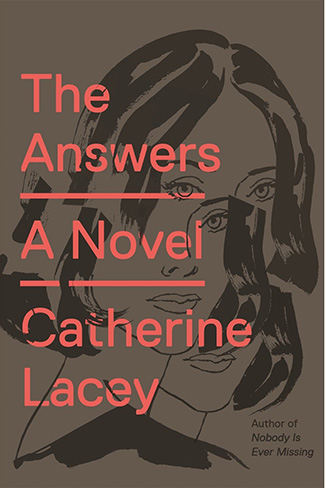
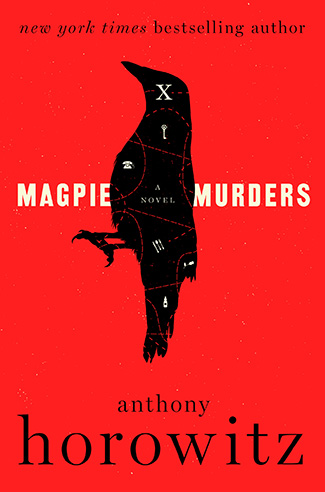

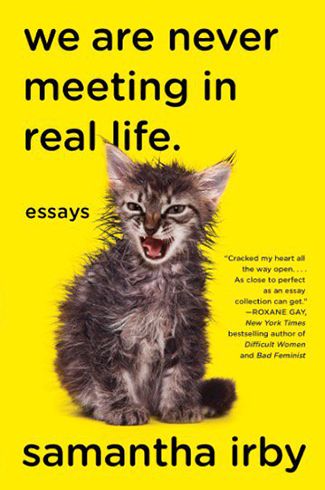
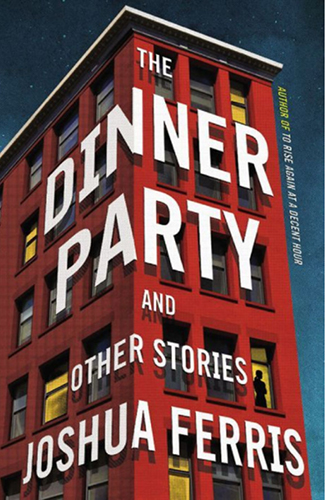
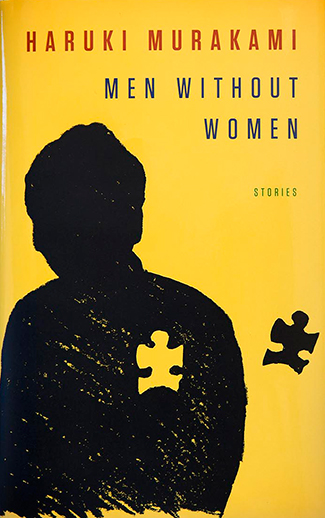
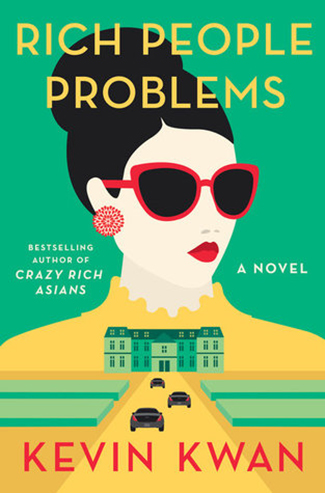
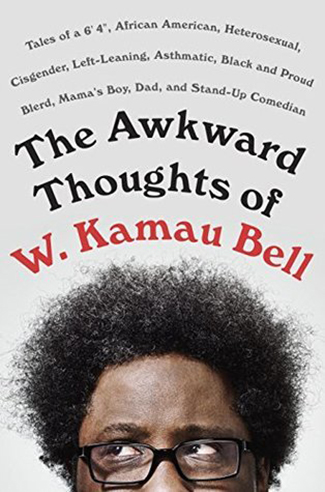
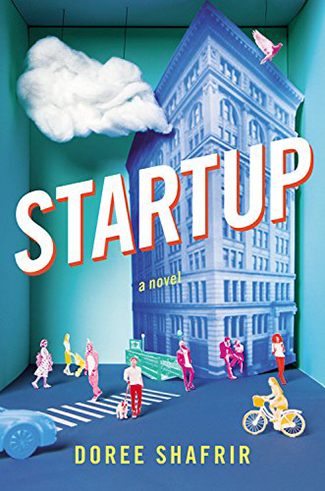
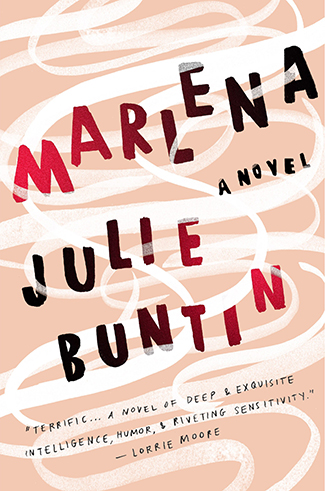
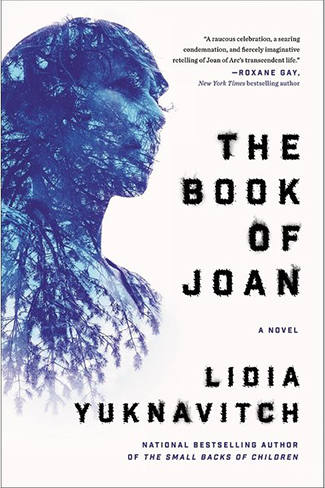
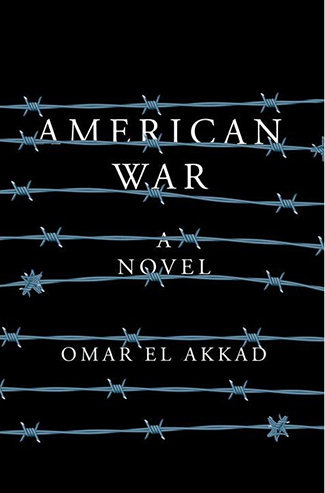
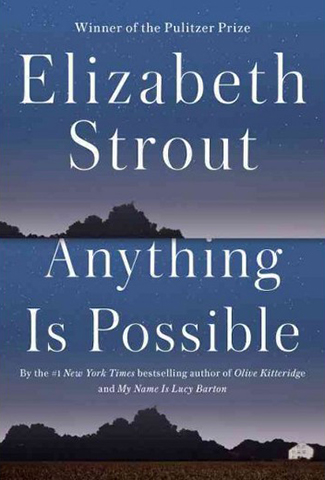





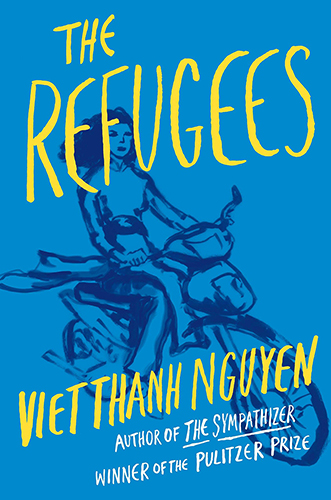
Comments
Post a Comment